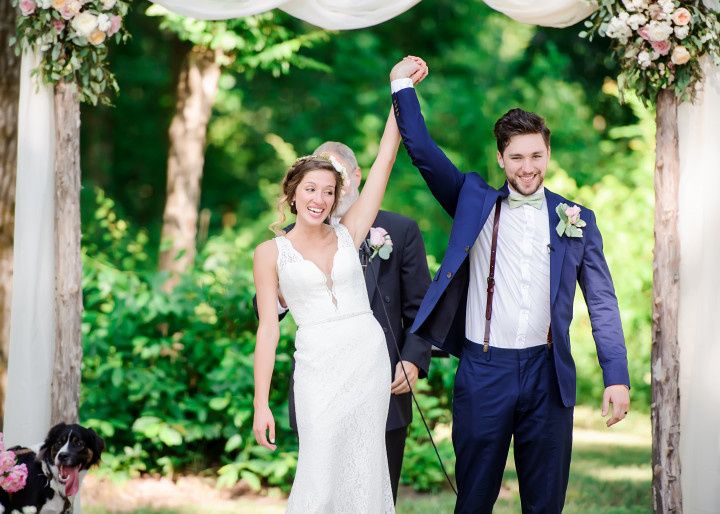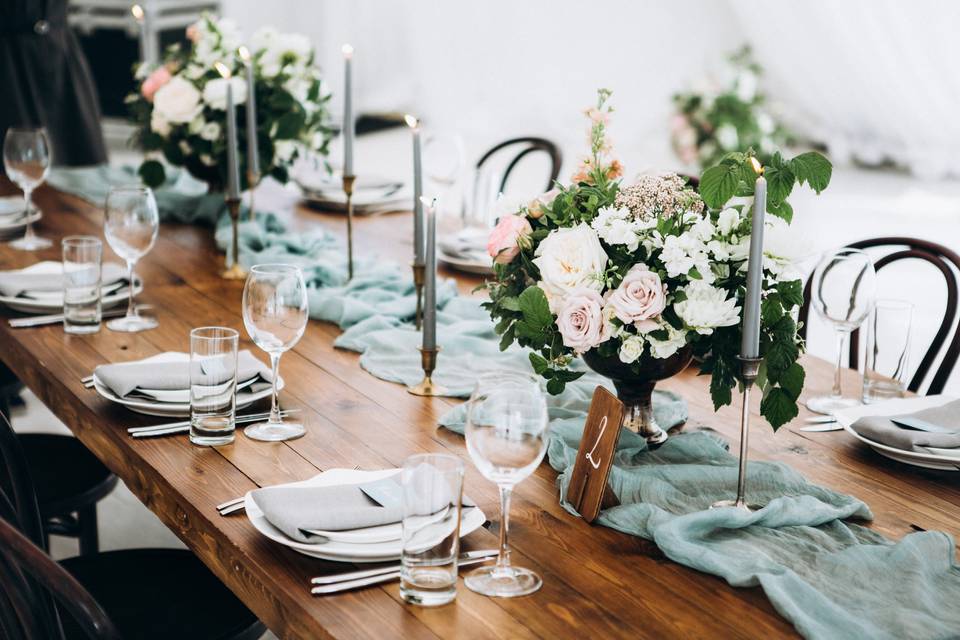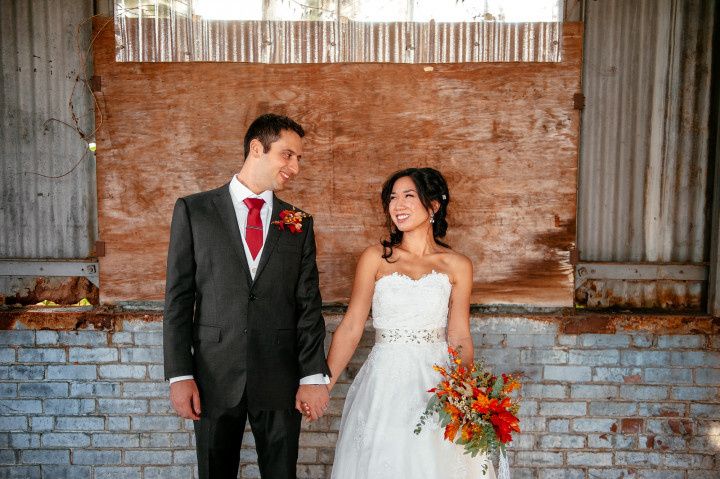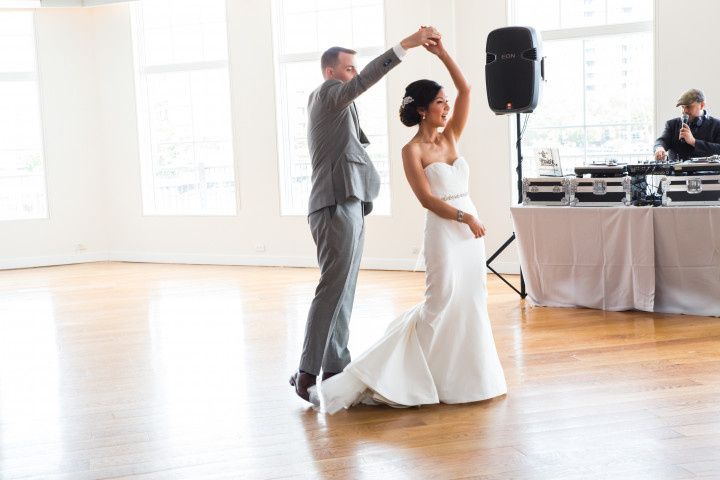Money Pros Give the REAL Scoop on Saving for Your Wedding
Financial experts share their best advice for making your wedding special, without giving up your entire lifestyle.

If you and your partner have started to seriously discuss putting a ring on it in the next year, then you don’t need us to tell you weddings are expensive. With the average wedding in the United States costing about $28,000 and more and more couples paying for their ceremony and reception on their own, it’s likely that cutting corners and pinching pennies might be a reality if you want to host the wedding you’ve always dreamt of. But before you actually make it to the altar, how can you set aside money in a smart way, without stressing out you and your spouse-to-be?
Here, financial experts share their best advice for making your wedding special, without giving up your entire lifestyle.
When you should start to save
A member of the founding team at Cinch Financial, Kerri Moriarty says that couples should start thinking about their wedding costs, basically from the time you have your first date. Okay - maybe not, but there’s no exact time that’s better than another to begin the crunching numbers tango. “I know people who have been saving for their wedding since before they were even in a relationship, and many others who start saving right after they get engaged,” Moriarty says. Even so, Moriarty explains that like saving for a car, a down payment on a home or a bucket list vacation, the longer you give yourself, the more you’ll be able to scrape together. “It’s a lot easier to set aside $20K over a three-year period than three-months,” she notes. “Most couples are engaged for roughly a year before the wedding, which gives you time to plan without a major time crunch.”
Be mindful of vendor fees
While, sure, you can put deposits on a credit card, it can be easy to slide out of control with your charges, especially when a swipe feels so effortless. Since many vendors not only book far in advance, but have various requirements on payments, having a bulk amount in cold hard cash will serve you, your financial future as a couple and - much better. “It’s to your advantage to be able to book and pay vendors as far in advance as possible. This will help you avoid last-minute rush pricing and you’ll be competing with fewer couples for the vendors,” Moriarty says.
Be reasonable about your budget
The first step of figuring out how you’re going to save is figuring out just how much you actually need to save. This is when Moriarty says it’s important to do a gut check as a twosome and come up with a realistic budget that allows for some wiggle room. “You and your partner have to decide what feels right to you and how wedding expenses interfere with some of your other goals. For some couples, a wedding signifies a huge milestone in your life and is something you’re willing to go all out for, even if it means not being able to buy a house or take a vacation for a few years,” Moriarty says. “Other couples don’t see throwing a big party as enough of a reason to deplete their down payment funds or stay in debt.”
Decide the right debt threshold
The key to your budget is understanding how much you’ll put on credit cards and how much debt you’ll take on, while still being thoughtful about your future. “What you don’t want to do is pay for the whole thing on a high-interest credit card or with a loan that you know you won’t realistically be able to pay off for a long time. It just won’t be worth it, since all the interest you’ll pay will set you back from other goals, not to mention stress you and your partner out, knowing you’re in constant debt,” Moriarty says. “Marriage can be a challenge on its own, you don’t want to add more financial stress from the get go.”
Be savvy about prices
When determining your budget, Moriarty says to never take a proposal at its first offer. Instead, dig around on the cost of photographers, bakers and musicians before figuring out just how much you should set aside for each expense. “City weddings tend to be more expensive than remote countryside weddings and summer weddings are more expensive than winter ones,” she explains. “Don’t just set an arbitrary number for each budget item, but get to know what options exist at different price points, and the quality of each to help prioritize what you definitely want and what you can compromise on.”
Add a wedding ‘tax’ into your monthly expenses
Regardless if you and your spouse-to-be live together or not, you should both set aside a certain amount each month that you can lovingly refer to as your ‘wedding tax.’ By making it a recurring responsibility, it’ll feel more like a bill, and less like something you could just skip if you saw a killer sale for shoes (you probably don’t need). “Once you set a wedding date, set up an automatic withdrawal from your account to fund your wedding. You can think of it as a payment plan for the total bill of your wedding day. With an end date in mind, it makes it easier to save for,” Moriarty says.
Be picky about what you buy
Much like bargaining between different apartments, the best price for tomatoes in town and anything else that you have to choose between, Moriarty says to have you and your spouse play ‘would you rather’ during wedding planning. “My now-husband and I did this all the time, together and separately,” she recalls. “I’d fill up my online cart at Nordstrom, look at the $200 total and ask myself if I’d rather have those clothes now, or my dream wedding. Wedding - usually - won. And since I felt good about spending $200 in the first place, I would immediately log into my bank account and transfer $200 to my wedding savings account.” By doing this technique, they ended up saving an additional $4,600 for their big day.





